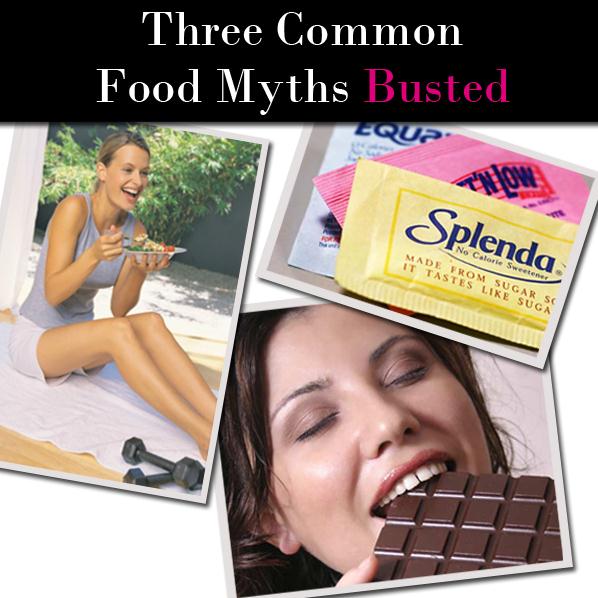Adopting a healthy lifestyle can be very difficult in this day and age with so many conflicting theories floating around out there. One day something is amazing for you, the next it’s horrible and should be avoided at all costs. One day it’s a miracle weight-loss cure, the next it’s the leading cause of obesity. How is one to navigate through such madness?!
There are endless food myths out there to keep you nice and confused. To help alleviate the problem, nutritionist Nicolette Pace identified the top three food myths and uncovers fact from fiction.
Should you be afraid of low-calorie sweeteners?
Forty years ago, the sugar industry poured over three million dollars in today’s money into research proving that low-calorie sweeteners such as saccharin and cyclamate were carcinogens – but were they? The research showed that when male rats consumed saccharin and cyclamate in amounts that would excess 800 cans of diet soda in a day, it led to bladder cancer – however the average American drinks 800 cans a year.
Should you eat before or after exercising?
For decades, professionals have warned us not to eat before we workout, but new research suggests that not only does it generally not make a difference, it may help you work out longer. Everyone, however, agrees that after your workout is the prime time to feed your muscles – and protein is what it needs. Also, recent studies have concluded that participants drinking chocolate milk in the hour after working out consumed with the protein of your choice, ends in higher muscle stores than participants who did not consume the chocolate milk.
MORE: The Clueless Girl’s Guide to the Gym
Do cravings mean your body missing something?
It is commonly thought that when you have a craving, it is your body’s way of telling you that you lack certain nutrients that the food that you’re craving has – but that’s flat out not true. The foods that we crave generally have a combination of sugar, fat and salt that triggers pleasure in the brain – cravings are an emotional release rather than a need of nutrients. When cravings persist it is better to go for a “controlled indulgence.” A trip to the store to purchase a single serving will not only satisfy you but make sure your treat doesn’t come back to bite you.
About Nicolette Pace:
Nicolette M. Pace MS, RD, CDE, CDN, CFCS is the founder and President of NutriSource Inc. a community based private practice that specializes in the delivery of Medical Nutrition Therapy, Diabetes Self Management Training, Health and Behavior Intervention and lifestyle counseling.


